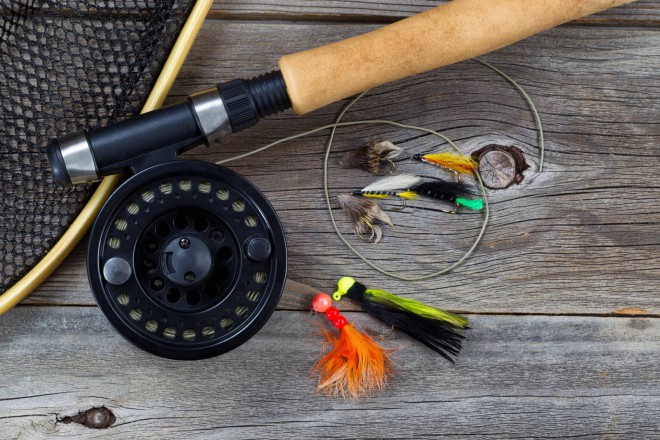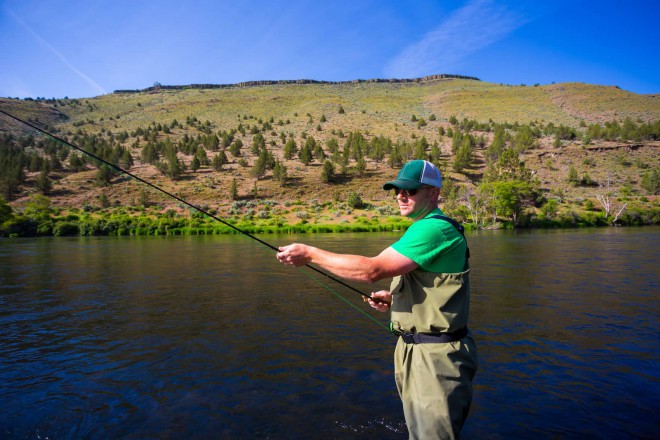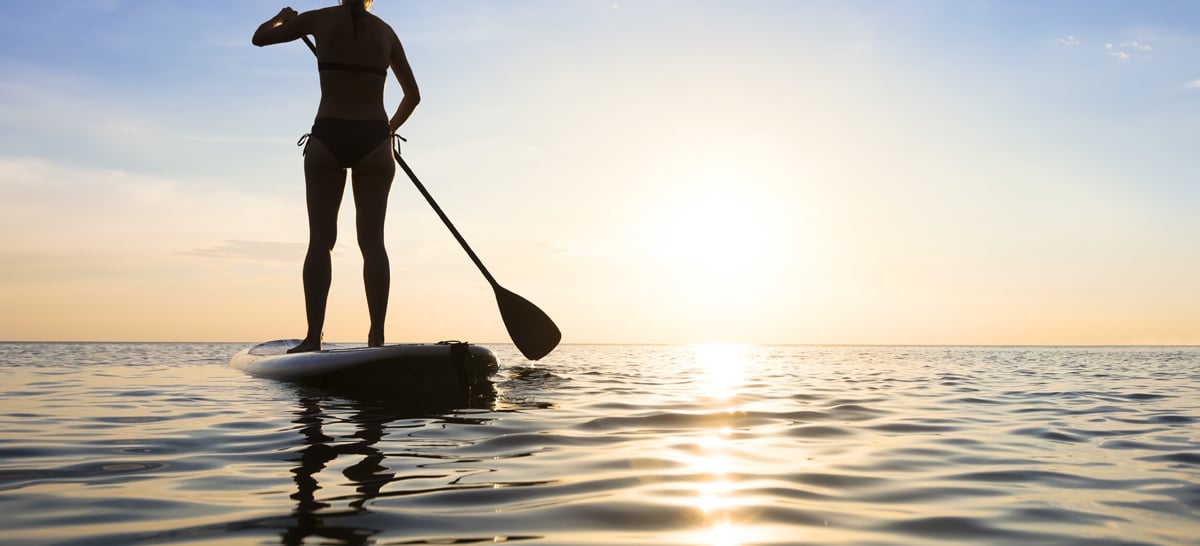- Know the kind of fish you want: Before you go fishing, you must first consider the kind of fish you want to catch. Each species of fish has a unique habitat where they can be found. And the fish you target will help you determine other things, like the type of fly to use.
- Select the right kind of fly: As a beginner, another thing you need to note is that the fly you choose should be identical to the food eaten by the fish you target. Flies include dry flies, nymphs, streamers and others. Learn more about basic fly-tying kit.
 ©Can Stock Photo | tab62
©Can Stock Photo | tab62- Weight and length of rod: The type of water body where you want to fish will determine the length of your rod. A 6- to 8-foot rod is suitable for freshwater ponds and streams. And a 9-foot rod is perfect for saltwater fishing and large freshwater rivers. The weight of the rod will also depend on the kind of fish you want to catch and the type of fly you are using. A 9-weight rod, for instance, is good for redfish, while a 4-weight rod is great for panfish.
- Wade properly: Your efforts will be rewarded more if you wade properly. It's important to move as gently as possible in order not to upset the fish. And avoid kicking up soil or stones with your feet.
- Use a shorter line: Shorter fly fishing lines will help you catch more fish. Although long lines might be more pleasing to the eye, they can be difficult to handle.
- Practice your fly casting: Practice your fly casting with as much time as you can afford. It could take some time to get used to fly casting with the weight of the line as opposed to the weight of the bait.
 ©Can Stock Photo | jrphoto
©Can Stock Photo | jrphoto- Start with the easier fish: Fish like small bass and bluegills are easier to catch than trout. So, start with these species to develop your fly fishing skills and avoid frustration.
- Apply previous experience: Your previous fishing experience matters as well. You can apply some of the skills you have previously learned to fly fishing. Doing so will help you master the art of fly fishing.
Fly fishing might be different from other types of fishing. But it isn't as difficult as you think. You just have to take your time and learn the ropes. To learn more about fly fishing, fly fishing gear, fly fishing techniques, and how to get a fishing license, visit TakeMeFishing.org.




